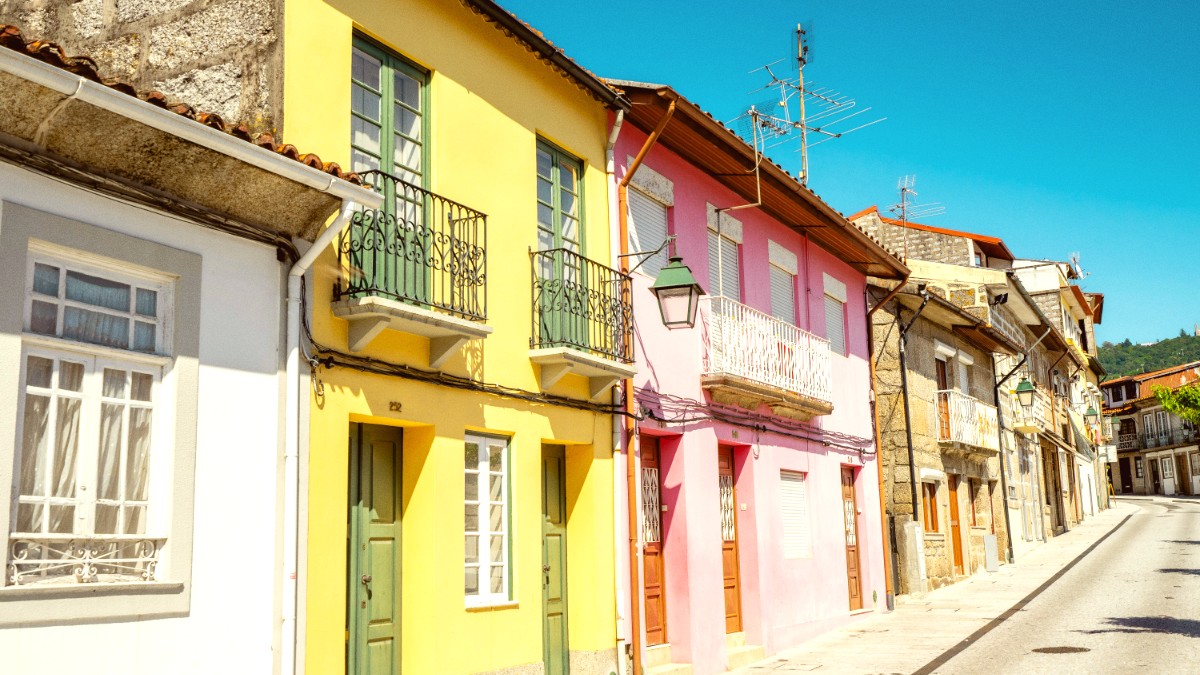
Portugal
Early spring, specifically March, brings noteworthy rain. By late April and May, the weather turns agreeable for outdoor exploration. Expect sunny periods interspersed with occasional showers. The landscape looks especially green. Evenings bring cool temperatures.
High Season (June to August): Warm, sunny weather ideal for outdoor activities and city energy. All attractions and services operate at full capacity. Festivals occur, adding vibrancy. Crowds gather at popular sites. Temperatures turn very hot, sometimes making daytime exploration uncomfortable.
Shoulder Season (April to May, September to October): Pleasant temperatures make walking comfortable. Fewer crowds appear than in summer. Prices for flights and accommodation turn lower. Spring brings green landscapes and blooming flowers. Autumn presents beautiful fall foliage. Rain chances exist, especially late in these seasons.
Significantly fewer tourists appear. Attractions are less crowded, allowing for a personal experience. Accommodation and flight prices find their lowest point. You will experience a local atmosphere, less tourism-focused. Frequent rainfall and cooler temperatures happen. Daylight hours are shorter. Some attractions or services keep limited hours or close for maintenance.
Guimarães typically avoids extreme weather. Summer heatwaves reach intensity. Hydration and Sun protection prove necessary. Carry water and seek shade during the hottest hours. Winter brings consistent rainfall. Pack appropriate Waterproof gear, including water-resistant shoes.
Shoulder seasons (April-May, September-October) offer comfortable temperatures and fewer crowds. Summer also works, if heat tolerates.
Spring and early autumn offer clear skies for panoramic views.
Summer brings ideal conditions for outdoor terraces and long evenings.
Low season tourism is minimal, deepening local atmosphere.
Autumn provides beautiful fall foliage colors.
The cool stone buildings offer respite from summer heat. Walking uphill to Monte da Penha is strenuous, but free. While quiet, the city maintains its charm even in damp weather. Heavy rainfall sometimes leads to localized street flooding, but this usually clears quickly.
Stay hydrated during daily activities. Prepare for bright sunshine and warm nights. Always carry water and seek shade during the hottest parts of the day.
Early autumn often extends pleasant summer weather. By October, cooler temperatures and frequent rain happen. November sees the onset of winter-like conditions.
Always check local forecasts upon arrival for the most current weather outlook.
Portugal is part of the Schengen Area. This impacts entry procedures for many nationalities.
EU/EEA/Swiss Citizens: A valid passport or national ID card meets travel needs. Freedom of movement within the Schengen Area applies.
Citizens from US, Canada, Australia, New Zealand, UK, Japan, South Korea do not need a Schengen visa for stays up to 90 days within any 180-day period. This covers tourism or business.
Other nationalities may need a Schengen visa. Application processing takes several weeks. Submit documents to the Portuguese embassy or consulate in your country.
Visa-exempt travelers, including US, Canada, UK citizens, will need an ETIAS authorization online. This enhances security. It is not a visa. Valid for three years upon approval.
Your passport must hold validity for three months beyond your departure date from the Schengen Area. It must be issued within the last 10 years. Your passport needs to meet these criteria well before travel.
The Euro (EUR, €) serves as Portugal's official currency.
Multibanco ATMs offer good exchange rates. Visa and Mastercard are widely accepted. Inform your bank of your travel plans.
Small cafes and local tascas often prefer cash. Carry small denominations for ease.
€150-€400+ (4-5 star hotel, boutique, high-end apartment)
€80-€200+ (fine dining, multiple courses, wine pairings)
€20-€70+ (taxis, ride-shares, private transfers)